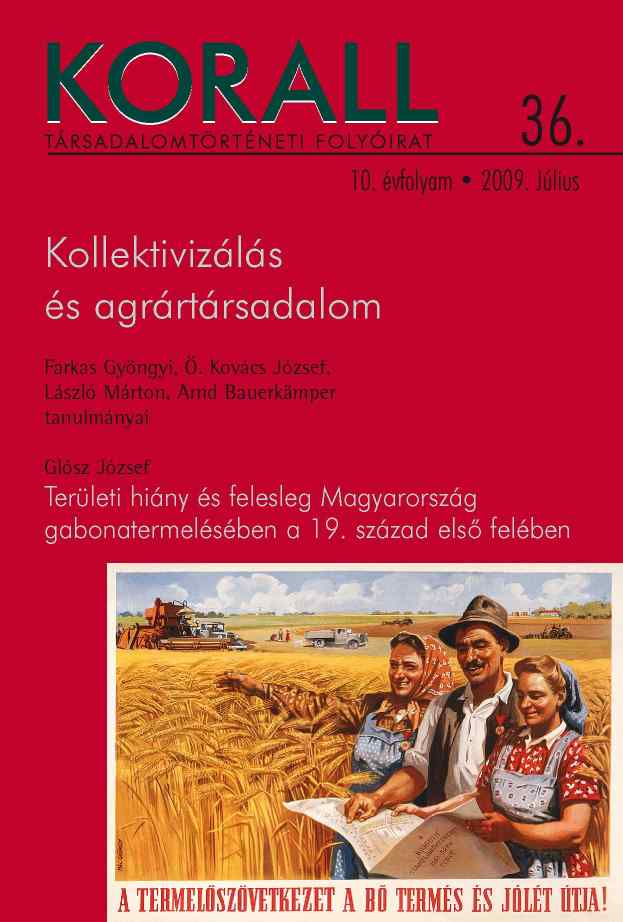Agrártörténet és agrártársadalom az NDK-ban
History of Agriculture and Agrarian Society in East Germany: Collectivisation at the Crossroads of Experience (Primärerfahrung), Memory and Historiogr
Author(s): Arnd BauerkämperSubject(s): History
Published by: KORALL Társadalomtörténeti Egyesület
Summary/Abstract: Experiences of the people involved in East German collectivisation do not correspond to the dogmatic hermeneutics, that characterises much of the Agrarian History scholarship in the second German Republic. Many historians were witnesses as well as holding important historian positions at the same time. This means that role and identity conflicts were often inevitable. In East Germany this tension could be resolved or at least minimised only by the re-definition of the ‘self explanatory terminology’ and complex processes of reconciliation. Undoubtedly, the idealism of starting afresh after 1945 attracted a large number of historians to the anti-fascist economic and social order, and social history. They filled positions in the Soviet Zone, and later in East Germany. It is notable that a fundamental transformation of personnel took place as well, although not directly after 1945. The ‘antifascist-democratic transformation’ was celebrated by these historians as the new hope of starting afresh. Due to this, scholarship concentrated mostly on the land reform that deprived the hated Junkers of their power. Collectivisation was perceived as a new chance in scholarship. Due to their idealistic and optimistic visions of the future, historians often shared the ideology of progress of those in power. The demands for partisanship shared willingly by many historians, although they did not always repress personal characteristics, had a significant impact on the legitimisation of the historiography in the SED-state. However, joining the political bandwagon was often confused with scholarly self-appreciation, which signals the scholars’ limited autonomy and substantial inertia.
Journal: Korall - Társadalomtörténeti folyóirat
- Issue Year: 2009
- Issue No: 36
- Page Range: 85-101
- Page Count: 17
- Language: Hungarian

